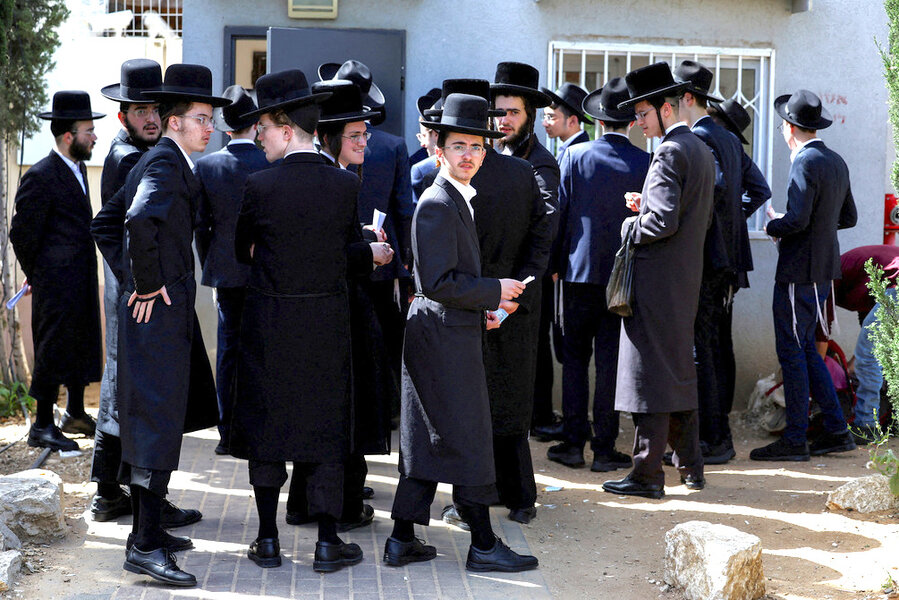Israel confronts its religious identity
Loading...
The conflict in Gaza has sharpened a debate within Israel about the purpose of Jewish prayer during war. Does it bring peace and security as much as the carrying of arms into battle?
The question was sharpened this week after the country’s High Court of Justice barred state funding to ultra-Orthodox schools for students who are of the age for military conscription. The ruling gives the government 30 days to come up with a strategy for folding this large religious minority, known as Haredim, into the military.
A religious exemption from the draft for Haredim dates back to the founding of modern Israel in 1948. The ultra-Orthodox communities argue that their study, prayer, and living according to Jewish law constitute an essential defense of Jewishness and the Jewish people.
“We live by the word of God, who is above everything,” Yehuda Cohen, a young Haredi resident of Jerusalem, told The Guardian. “You see, studying the Torah, especially in these days of conflict, is a way for us to fight the war.”
As Israeli society has grown increasingly discontent with the war in Gaza, the special treatment for Haredim has become a source of division. The issue renews a debate familiar to many wartime societies about finding a balance between equal sharing of national defense and a right of individuals to rely on conscience or prayer as a means of peace. Getting that balance wrong in either direction can weaken the cohesion of a nation at a point when it cannot afford to lose either.
Granting exemptions from military service too broadly can undermine a government’s aims and erode the values that bind societies, wrote Wojciech Ciszewski, a law professor at Jagiellonian University in Kraków, Poland, in the Oxford Journal of Law and Religion in 2021.
The war in Gaza has boosted calls for shared sacrifice among all Israelis. A poll by the Israeli Democracy Institute in March showed that 70% of Israeli Jews support drafting Haredim. Yet in the debate over the defensive value of prayer and religious practice, the conflict is also prompting Israelis to confront more deeply the different causes of war – and whether prayer can prevent it.
“Real Jews ... want to live in peace with the neighbours like we lived for hundreds of years,” wrote Rabbi Naftuli Flohr, a member of one of Jerusalem’s oldest Haredi associations, in a post on X, formerly Twitter.
All around the world, people have responded to the wars in Gaza, Ukraine, Sudan, and elsewhere with prayer. The debate in Israel over whether to draft young Haredi men has put a useful spotlight on alternative ways to end conflict and bring peace.







